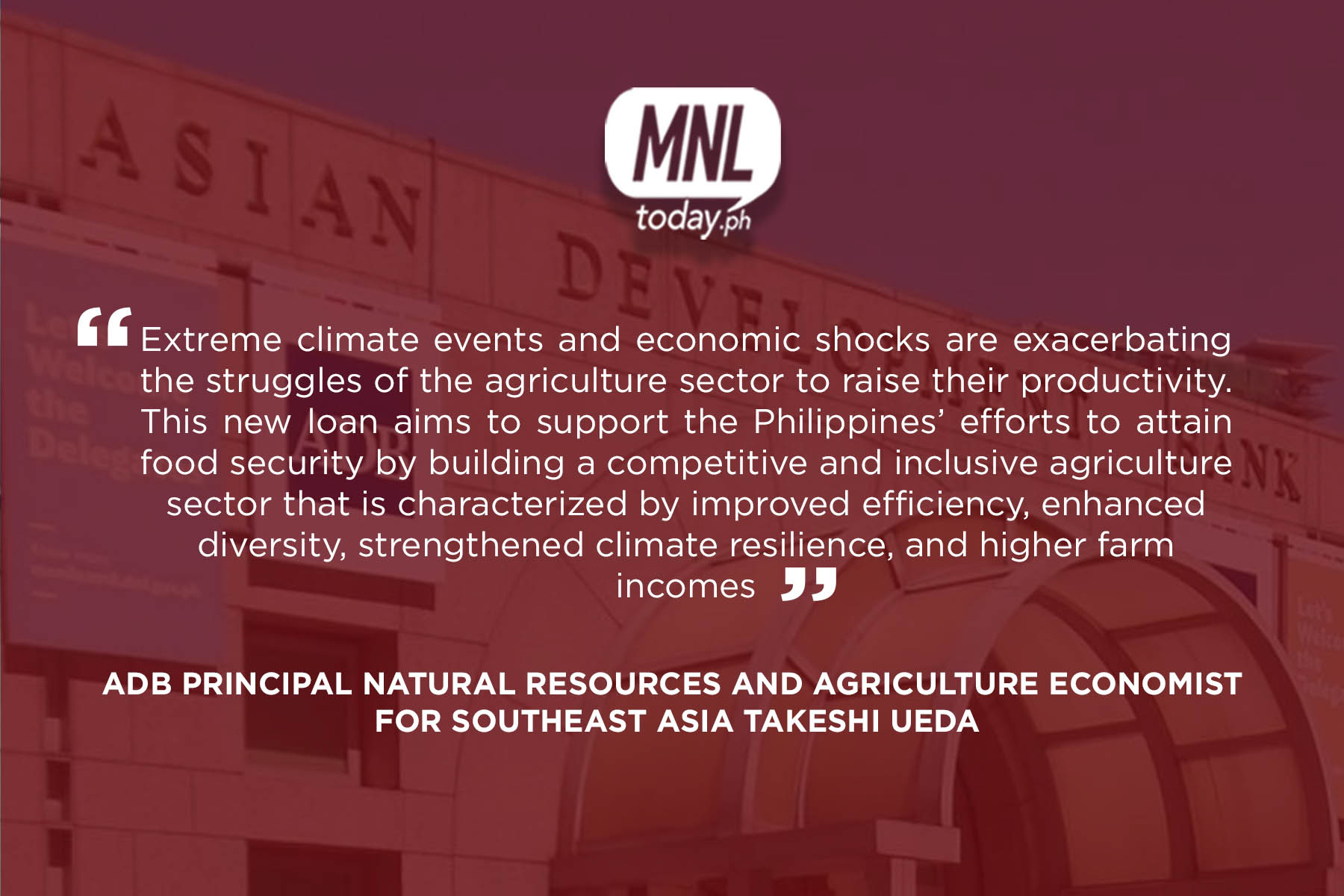The Asian Development Bank (ADB) has granted a $500 million policy-based loan to assist the Philippine government in increasing agricultural economic prospects while ensuring the population’s near- to long-term food security.
It promotes the Competitive and Inclusive Agriculture Development Program Subprogram 2, to further the development of the agriculture sector through changes to trade policy and regulatory framework. Additionally, it aims to improve sectoral public finances and services, as well as social protection for rural families impacted by the program’s reforms.

The first subprogram’s policy initiatives that were authorized in 2020 are still supported by the second subprogram. These legislative initiatives are in line with the just released Philippine Development Plan, 2023–2028. This new program supports efficient rice buffer stock management for disaster situations and to ensure food security in the Philippines.
The new loan supports the provision of unconditional cash transfers to smallholder rice farmers and concessional loans to micro and small enterprises engaged in agriculture and fisheries, as well as smallholder farmers and fisherfolk, through the COVID-19 recovery and other credit assistance programs.

The second subprogram will also assist the government in advancing the planning and management of land use and water resources, it guarantees that there is adequate funding to improve the competitiveness of the nation’s rice industry under a liberalized trade regime and strengthen government support for the agriculture industry.
The Philippine agriculture, natural resource, and rural development sectors have long been the focus of ADB involvement. Other initiatives being prepared by the bank include the Integrated Flood Resilience and Adaptation Project, the Mindanao Irrigation Development Project, and the Mindanao Agro-Enterprise Development Project, all of which will aid in the sector’s increased resilience.
ADB is dedicated to establishing a prosperous, inclusive, resilient, and sustainable Asia and the Pacific, continuing its efforts to end extreme poverty. It was founded in 1966 and is owned by 68 members, 49 of them are locals.







